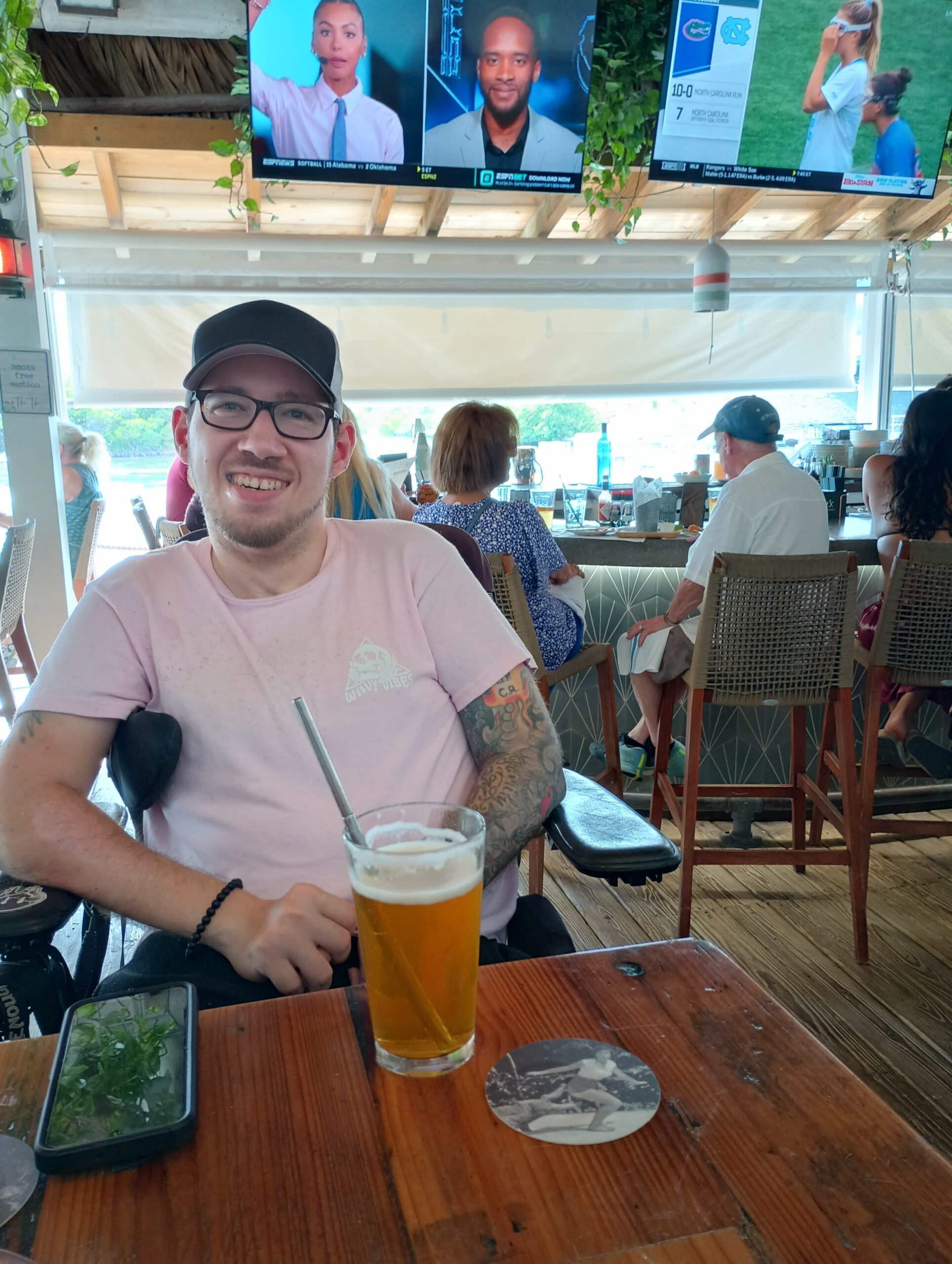I’m Jason Armitage’s mother, Faye. I’m writing this because he is severely disabled: paralyzed from the nose down and speech impaired.
Blood clots in young people often get misdiagnosed and symptoms are routinely dismissed, as was the case when we visited the ER after a soccer game with then-7-year-old Jason.
He had collided with another soccer player and suffered a hyperextension injury to his neck. He complained of a severe headache, nausea, and dizziness. They dismissed it as a simple concussion, even though he was throwing up throughout the night following the ER visit.

Six weeks later, my son woke up in the middle of the night, unable to speak, but squeezed my hand when I asked him if he had a headache. I rushed him to the ER again, and he was barely able to walk anymore as we entered.
None of the three hospitals who saw him ordered the right tests. Due to a misdiagnosis, my son became paralyzed from the nose down after he developed a blood clot in the basilar artery in the aftermath of that soccer injury.
Basilar artery thrombosis is a type of stroke that occurs when a blood clot blocks the basilar artery, which supplies blood to the back of the brain. This blockage interrupts blood flow, potentially leading to brain damage.
He was only 7 years old and has been living with quadriplegia using a power wheelchair for 28 years now.
The blood clot was identified four months after he became paralyzed. If it had been found in the first 24 hours, he could have had a clot-busting medication to clear it and never would have become so severely disabled!
I’m happy that greater awareness is given to young people who get blood clots from sports injuries to prevent severe disability and even death. Recovery was sadly not possible for Jason. But we hope his story prevents similar misdiagnoses and saves lives.




